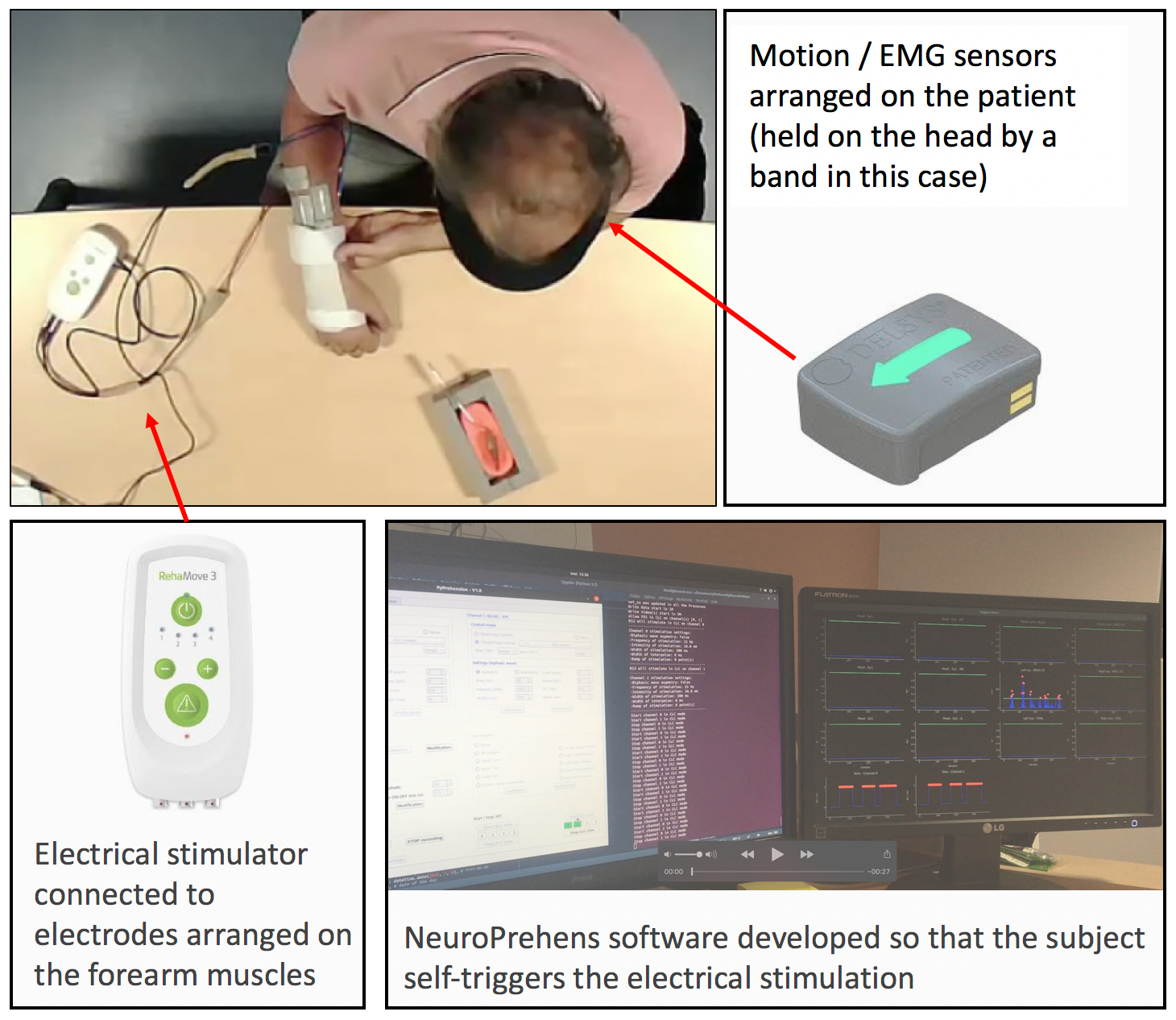Section: New Results
Functional impact of a self-triggered grasping neuroprosthesis in post-stroke subjects
Participants : David Gasq, Christine Azevedo, Ronan Le Guillou, Jérôme Froger [CHU Nîmes, France] .
The improvement of the grasp abilities remains a challenge in the 50% of post-stroke subjects who have not recovered functional grasping due to paralysis of the finger’s extensor muscles. The ePrehension-Stroke is a prospective, bicentric (promoted by the CHU de Nîmes), multi-crossover, blinded evaluation study which assesses the functional impact of a self-triggered grasping neuroprosthesis. We have developed a specific software, NeuroPrehens, which controls external electrical stimulations applied over finger’s extensor muscles and was triggered by voluntary head movements or electromyography activity of leg muscles. The main objective is to assess the impact of the self-triggered grasping neuroprosthesis on the ability to perform a standardized task of grasping, moving and releasing either a glass (palmar grasp) or a spoon (key pinch), compared to the absence of neuroprosthesis use. Secondary objectives are to assess (1) the preferential modes of neuroprosthesis control, (2) the impact of the neuroprosthesis on a standardized unimanual grip scale (Action Arm Research Test), (3) the psycho-social impacts (Psychosocial Impact of Assistive Devices Scale questionnaire) and the subject's satisfaction and tolerance (Quebec User Assessment of Satisfaction with Assistive Technology questionnaire) related to neuroprosthesis use. Over 20 subjects planned to include until June 2020, we have included 8 subjects since July 2019. The prospects of this pilot study are to develop a fully wearable and self-piloted neuroprosthesis that can be used in daily life by the largest number of post-stroke subjects who have not recovered active grasping abilities.



